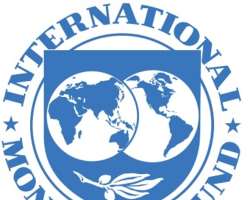IMF Mission Commends Seychelles' Macroeconomic Performance, Encourages Reforms to Safeguard Progress

VICTORIA, Mahe, March 26, 2015/African Press Organization (APO)/ -- An International Monetary Fund (IMF) staff mission led by Marshall Mills visited Victoria from March 11-26, 2015 to conduct the 2015 Article IV consultation discussions and assess performance under the second review of the Extended Fund Facility (EFF) Arrangement with Seychelles.1
At the conclusion of the visit, Mr. Mills issued the following statement:
“The resilience of the Seychellois economy continues to strengthen, with an improvement in the external sector starting late last year. The strong fiscal position kept public debt on track to fall below 50 percent of GDP by 2018. Monetary policy targets were tightened significantly in the fourth quarter of last year in response to exchange rate depreciation (11 percent against a trade-weighted basket of currencies) and the inflationary pressures anticipated as a result. The authorities successfully met all but one of their quantitative program targets for end-December 2014. The targets for the fiscal primary surplus and increase in international reserves were surpassed comfortably last year, boosting the resilience of the economy. The reserve money ceiling was exceeded by a very small margin, which was later corrected.
“By December, the balance of payments pressures had largely abated following the monetary tightening, the dampening impact of the depreciation on imports, and positive external developments, notably the fall in fuel prices and a partial recovery in tourism. Estimated growth last year reached 3.3 percent, slightly higher than expected, while end-year inflation was 0.5 percent (year-on-year). Inflation subsequently ticked up to 3.7 percent in February 2015, as expected. The external stabilization demonstrated the appropriateness of the authorities' policy response and the importance of continuing exchange rate flexibility.
“The outlook for 2015 remains positive. The current account deficit is expected to contract as imports fall with both lower demand and lower fuel and commodity prices. Although the weak Euro is putting some pressure on yields, tourism arrivals are rising moderately, and growth is projected at 3.5 percent, higher than previously expected. The primary surplus targeted by the budget remains attainable and appropriate. Continued tight monetary policy is needed to rein in inflationary pressures and help moderate rapid credit growth; end-year inflation is expected to come in under 5 percent. International reserves are expected to rise modestly in 2015, maintaining adequate import coverage. The Central Bank of Seychelles stands ready to adjust policies in light of developments.
“The medium-term outlook is upbeat, following Seychelles' strides since the 2008 debt crisis, but challenges remain. Seychelles' highly open economy is inherently vulnerable to external shocks, while some deep-rooted structural weaknesses have not yet been fully addressed. Continued public debt reduction underpins the growing resilience of the economy, while the increasingly forward-looking monetary policy framework and strong international reserve position will reinforce confidence.
“Like many small middle-income economies, sustaining rapid growth and achieving high-income status in Seychelles will require continuing structural reforms that enhance competitiveness and reduce risks. Staff welcomed measures to foster an environment conducive to private sector led growth and encouraged further measures. Noting the weak operating results of certain public enterprises, staff stressed the burden and risks that they can pose to the public finances. Staff highlighted that safeguarding the hard-won economic gains of the past six years requires strengthening the governance and oversight of public enterprises, including ensuring a focus on core mandates, minimizing risk to the public finances from any new mandates, and preserving the space for private sector development.
“The mission met with His Excellency President James Michel, Vice President Danny Faure, Minister of Finance, Trade, and the Blue Economy Jean Paul Adam, and Governor of the Central Bank of Seychelles Caroline Abel, as well other members of government, members of the National Assembly, and representatives of the private sector and civil society.
“Staff expects the IMF Executive Board to discuss the completion of the review in June. The mission appreciates the high-quality discussions and thanks the authorities for their hospitality, as well as the open and constructive dialogue.”
1 The Extended Fund Facility under the Extended Arrangement is an instrument of the IMF designed for countries facing serious medium-term balance of payments problems because of structural weaknesses that require time to address. Assistance under the extended facility features longer program engagement—to help countries implement medium-term structural reforms—and a longer repayment period. (See http://www.imf.org/external/np/exr/facts/eff.htm). Details on Seychelles' current arrangement are available at www.imf.org/seychelles.
